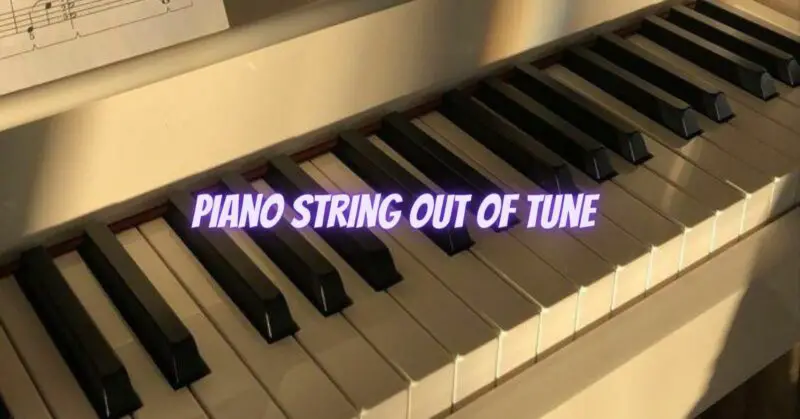A well-tuned piano is a delight to play and listen to, but over time, piano strings can go out of tune due to various factors. When a piano is out of tune, it can be frustrating for both the player and the audience, as it produces dissonant and unpleasant sounds. In this article, we will explore the common causes of piano strings going out of tune and provide some solutions to rectify the issue.
Causes of Piano Strings Going Out of Tune:
- Temperature and Humidity Changes: One of the primary reasons for a piano going out of tune is fluctuations in temperature and humidity. Wood, which is a major component of the piano, responds to changes in humidity by expanding and contracting. This affects the tension in the strings, causing them to go flat or sharp.
- Frequency of Use: Regular and frequent use of the piano can cause the strings to stretch over time, leading to gradual detuning.
- New or Old Strings: New piano strings tend to stretch and settle during the first few weeks after installation, requiring frequent tuning. Conversely, old strings may lose their elasticity and fail to hold their tune.
- Poor Quality Strings: Low-quality strings are more prone to breakage and detuning compared to high-quality, well-crafted strings.
- Tuning Pin Slippage: The tuning pins that secure the strings can sometimes slip, resulting in the strings losing their tension and going out of tune.
Solutions to Address Piano Strings Going Out of Tune:
- Temperature and Humidity Control: Keep the piano in a room with a consistent temperature and humidity level. Avoid placing the piano near windows, vents, or sources of direct sunlight, as these can cause rapid changes in temperature and humidity.
- Regular Tuning: Schedule regular piano tuning sessions with a professional piano technician. Piano tuning is a specialized skill that requires precision and expertise, and a qualified technician will ensure that your piano is tuned accurately.
- Maintenance and Inspection: Regularly inspect your piano for any signs of wear or damage. If you notice any broken or worn-out strings, have them replaced promptly by a professional technician.
- Choose High-Quality Strings: When replacing piano strings, opt for high-quality strings made by reputable manufacturers. These strings are more durable and are less likely to go out of tune frequently.
- Avoid Over-Tightening: While trying to tune the piano yourself, be cautious not to over-tighten the strings, as this can lead to string breakage or other damage.
- Seasonal Tuning: Consider scheduling piano tuning sessions at the start of each season, as seasonal changes can affect the piano’s tuning.
- Piano Regulation: Apart from tuning, regular piano regulation is also crucial to ensure the piano’s overall performance and stability.
Conclusion:
Piano strings going out of tune is a common occurrence due to various environmental and usage factors. Regular piano maintenance, proper temperature and humidity control, and professional tuning are key to keeping your piano in tune and providing you with a harmonious and enjoyable playing experience. Remember that piano tuning is a delicate task that requires training and experience, so it’s best to leave it in the hands of a qualified piano technician for optimal results.


